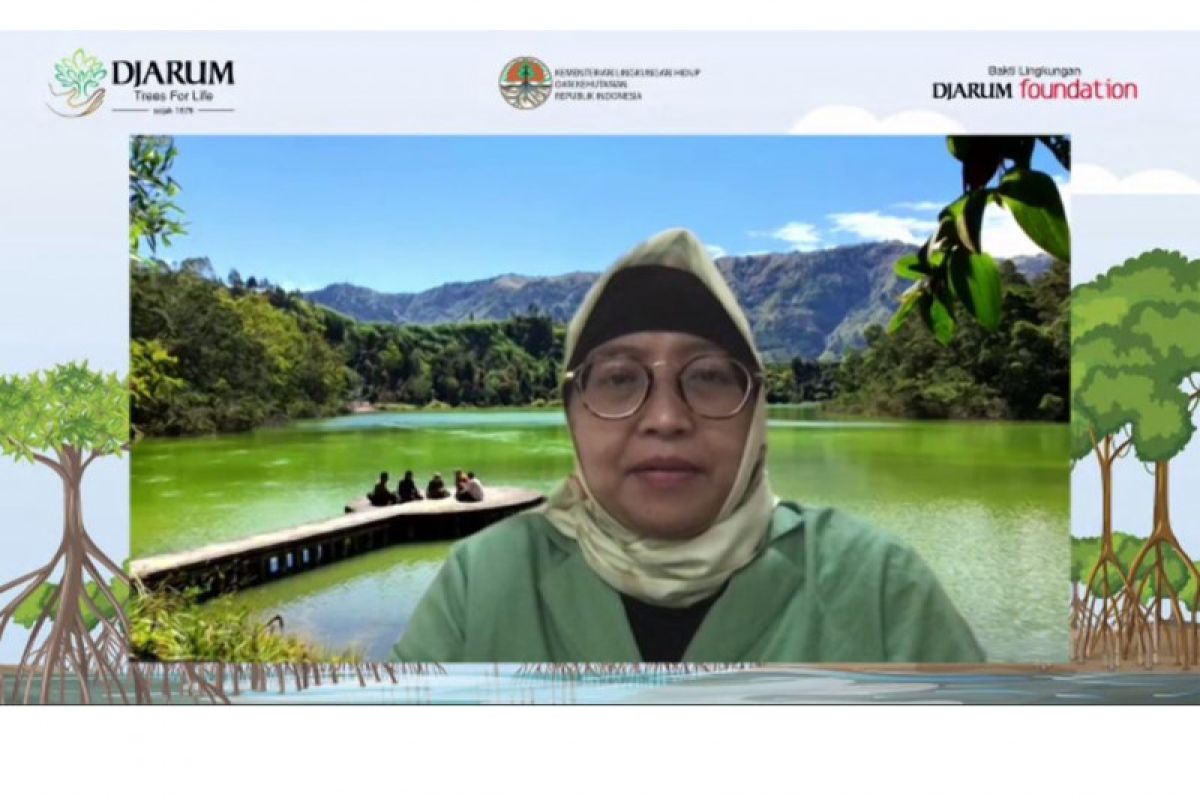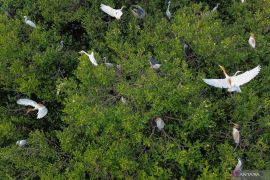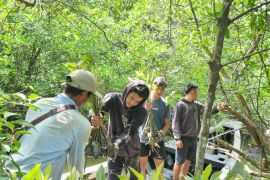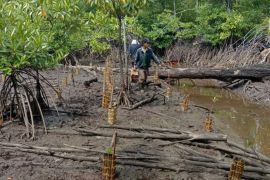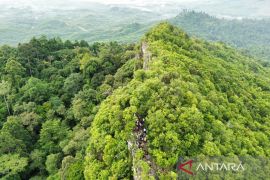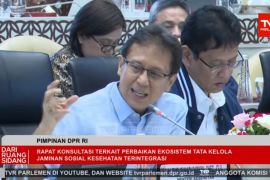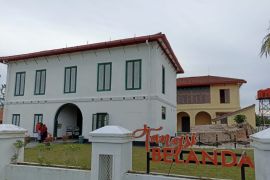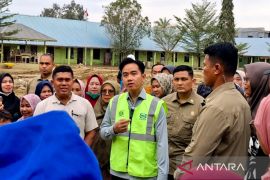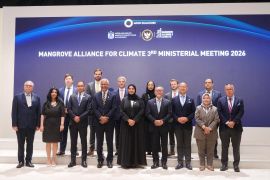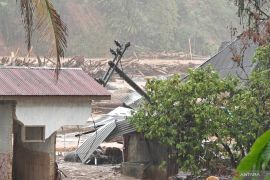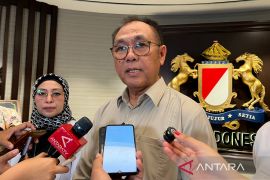Our mangroves are still in a relatively good condition, and it is our responsibility to make efforts according to the capacity and authority of each partyJakarta (ANTARA) - All stakeholders must have the same view and commitment toward the restoration and conservation of mangroves in Indonesia, director of land water damage control at the Ministry of Environment and Forestry, Sri Handayaningsih, said.
In the last two years, Indonesia's mangroves have become a concern for President Joko Widodo (Jokowi) and even the world as a strategic ecosystem, she noted.
"Actually, we have made efforts to manage and rehabilitate mangroves since a long time ago, but for the past two years, we have been encouraged by joint efforts from the government, the private sector, and so on," she said at an online press conference on Thursday.
Mangroves provide an opportunity for Indonesia to accelerate the target for reducing greenhouse gas emissions, as proclaimed in the Paris Agreement, by 2030, she added.
According to the 2021 National Map of Mangroves that was launched last month, Indonesia is home to 3.36 million hectares of mangroves or 20 percent of the world's mangroves and 36 percent of Southeast Asia's mangroves.
Related news: President to plant mangroves with residents of Riau, Riau Islands
Based on the map, 701 thousand hectares of mangroves in the country need to be rehabilitated, Handayaningsih said.
"Our mangroves are still in a relatively good condition, and it is our responsibility to make efforts according to the capacity and authority of each party," she added.
However, the degradation of mangrove ecosystems in almost 34 provinces in Indonesia is still quite alarming and can threaten the existence of mangroves in coastal areas, she said. Their degradation has been attributed to the conversion of land into ponds and palm oil plantations, illegal activities, and so on, she added.
Related news: Indonesia targets rehabilitating 34,000 ha mangrove areas this year
In addition, problems related to the socio-community aspects of a beach or mangrove coast must also be weighed, she said. For this reason, the scheme for restoring mangrove ecosystems in Indonesia includes conservation, socio-economic, and institutional pillars, she explained.
She affirmed that the ministry has been conducting a mangrove management and rehabilitation program through the national economic recovery (PEN) scheme for the past two years.
Last year, President Widodo also formed a special agency to expedite mangrove rehabilitation by issuing Presidential Regulation Number 120 of 2021 that mandates the acceleration of rehabilitation of around 600 thousand hectares of mangroves by 2024.
Related news: Preserving Indonesia's mangroves to nurture blue carbon potential
Related news: President, ambassadors plant mangroves in N Kalimantan's Tana Tidung
Translator: Rizka Khaerunnisa, Raka Adji
Editor: Fardah Assegaf
Copyright © ANTARA 2021
